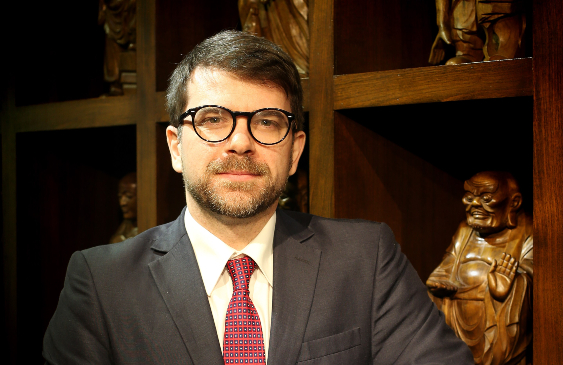Portuguese Gaming – Legal framework, trends, opportunities and updates

Head of Portuguese Desk at Lektou Advogados Oscar Madureira analyses the opportunities in the emerging Portuguese gaming market.
Opinion.- Portugal is one of the top emerging markets in Europe, which is why Oscar Madureira, Lawyer & Head of Portuguese Desk at Lektou Advogados disects the gaming segment in the country and assesses potential opportunities there.
Legal Background
Since Portugal enacted its first legal framework on games of chance back in December 1927, that country´s legislation has increasingly integrated several different forms of games of chance and operations. Despite some delays meeting worldwide industry developments one can say that with the enactment of online gaming ordinance in 2015, Portugal recognized and regulated a significant portfolio of games of chance comparable with the most gaming friendly jurisdictions around the world.
See also: iGaming in Portugal records 55% hike in Q3
Portugal market although small holds at the same time a highly regulated and mature environment offering several different types of gambling products; from traditional land based casinos spread between north and south mainland and Atlantic islands to online sports betting and popular land based lotteries (still) operating under monopoly, local residents and tourists may find a quite diverse proposal when looking for this type of entertainment.
In terms of legal framework, the legislator took several different approaches depending on the type of gaming and operations. For example, land-based casinos and lotteries are operated under concession basis. Currently there are 13 land-based concessions split between Portugal mainland (10) and Azores and Madeira islands (3). With respect to land-based lotteries, these operations are solely explored by Santa Casa da Misericordia de Lisboa, one of the last legal monopolies in the country.
Concessions legal regime generally cover activities absorbing significant investments, which operation would be reserved to the state itself (e.g., communications, infra-structures, transportation etc.) for public interest reasons, the state may decide to assign those operations by signing a (concession) contract with a private entity, which will have to follow several different legal, financial and social requirements under such contract. Considering the complexity of the operations and the amounts to be invested by private entities, concessions are normally granted on a long-term basis, i.e., 20 years plus.
In Portugal, the 1927 legislator, enacting the first legal framework on games of chance, took in consideration not only the relatively uniqueness and exclusiveness of gaming operations (at that time there was only 2 permanent and 6 temporary gaming zones) but also the significant investment to be made by a restricted number of operators in order to justify the selection of Concession as operating model instead of a more and less demanding legal figure.
Since then, the legislator maintained Concession as the model for land based operations, despite several changes introduced to gaming laws throughout the years. These changes encompass several aspects of casino operations but also covered changes to gaming zones classification, taxation and other concessionaires’ contributions, regulating model and entity, means for concession issuance, etc.
On the other side, with respect to online operations (sports betting and casino games) Portuguese legislator took a very different approach which was somehow in line with what was imposed by its European pears for similar operations. The 2015 legislator selected a less demanding, complex, and not so restrictive operating model for online gaming industry. These operations are not subject to limitations in terms of number of operators and are legalized by means of a license issued by the regulator following a valid application submitted by any entity capable to comply with the suitability and financial criteria imposed by applicable laws. This license is granted for a period of 5 years renewable for equal periods should the licensed entities keep complying with the same level of requirements imposed for first application.
Trends
In terms of market share in 2019 land based casino operations were still leading the market but like in many other gaming jurisdiction the online part of the industry kept growing in a very fast and stable growth.
2020 though was a dramatic year for land based operations. Casinos closed their doors on March 14 and reopened after June 4 after the introduction of several hygiene and safety measures to protect customers and employees. During the summer, casinos in Estoril gaming zone (Estoril and Lisbon) were forced to reduce opening hours due to the high number of cases of covid recorded by that time in the region and since mid-September, all casinos in the country had to close at 11 pm, given the surge of the pandemic second wave. During 2020, the 11 casinos operating in Portugal generated total revenues of 122 million euros, a decrease of more than 40% compared to the same period in 2019.
With respect to the online operations, the curve is totally different, the GGR growth was in the region of 48% a year and the Portuguese market saw also an increase in the number of operators, gaming products offer and new players. This is also in line with world’s trend in pandemic times.
Opportunities and Market Updates
Two of the land based casino concessions, Figueira da Foz and Estoril (including Estoril and Lisbon casinos) were supposed to end by December 31, 2020 and the new concessionaire were to be selected by a mandatory international public tender, to be launched by the Portuguese Government before the said term. Ideally, given the complexity and the characteristics of this tender one would say that it should have been launched at least 12 months before the term of the concession, i.e. sometime around December 2019. This is because in principle, these land based casino concessions -as any other concessions- are not subject to any administrative extensions. However, the so expected tender was not launched and in March 2021, Portugal was affected by the Covid19 pandemic. Thus, given the circumstances inherent to the pandemic as well as to the adverse market conditions, the opening of the tenders for new concessions is still pending. This means the said concessions will remain in effect as Portuguese government has not announced yet what will be the length of those extensions. Rumors mention that Figueira da Foz and Estoril concessions may be extended for a period of 3 year matching the terms of other land based casino concessions like Algarve, Espinho and Póvoa do Varzim which will occur in December 31, 2023.
If extension is confirmed in such terms, one would say that 2023 may be a year for great opportunities in Portuguese gaming market as the majority and the most profitable land based operations in the country are going to be available under an international public tender, to which all suitable candidates are most welcome.
For that, it would be important for all candidates, to better understand not only the legal framework but in addition the potentialities and challenges of the gaming areas to which each concession refers to. Portugal’s gaming market may be small however if one looks to the unique touristic location of some of these properties and question how successful could be an infrastructure offering an entertainment experience instead of being just another gaming outlet, I trust that many of the worldwide operators could consider investing in the country.
Portugal’s political, economic and social stability as well as its trendiness as European touristic destination, would be a perfect combination to set up a property capable to offer a unique experience and of could several gaming products to its visitors.
One promises to be vigilant and to keep all readers updated.











